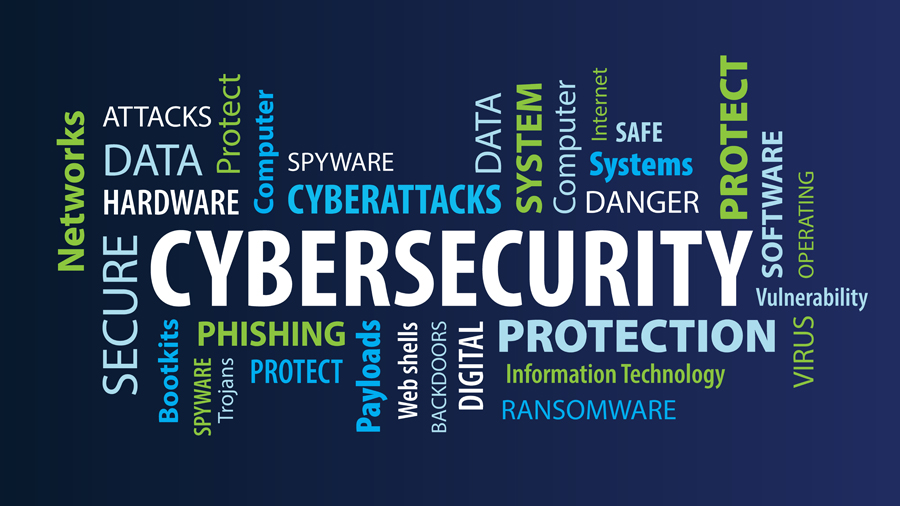Cybersecurity: Large firm or small firm, hackers are targeting your practice
Cybersecurity: Large firm or small firm, hackers are targeting your practice
By Carl Mazzanti
When Taft Stettinius & Hollister LLP – an AmLaw 100 firm – sustained a significant cyberattack in late 2023, sensitive information concerning some 6,000 individuals was affected, including client names, addresses, and Social Security numbers. This highlights the threat cyberattacks pose on law firms and underscores the need for stout cybersecurity protections.
Law firms of all sizes have been targeted by attackers because even the smallest solo practice holds privileged information about clients that is of potential value to cybercriminals. Larger firms often make more attractive targets for hackers and scammers because of their longer client lists and the possibility of the appropriation of even more confidential data.
A recent survey by Above the Law and the security provider Arctic Wolf indicated that nearly 40 percent of the law firms responding reported a security breach within the past year. According to the same survey, 97 percent of respondents said they had at least one employee dedicated to information security, but only about one quarter of those surveyed said their firms were “very prepared” to respond to cybersecurity threats.
Consequently, a cybersecurity system has become a basic requirement for all firms. As cyber threats continue to evolve, it is imperative for firms to adopt comprehensive cybersecurity strategies to protect clients and their own reputations.
Managed service provider
One of the most effective ways to deter cybercriminals is by partnering with a managed service provider (MSP). By leveraging an MSP’s expertise, your firm can focus on value-added matters while benefiting from advanced security measures, continuous monitoring, and rapid incident response.
A firm’s security gaps can initially be identified with a comprehensive risk assessment. But before recommending use of specific cybersecurity measures, an effective consultant will detail the specific challenges faced by a firm. By developing a list of pain points, priorities, and current processes that address a firm’s specific needs, an MSP will identify and implement appropriate technology safeguards.
Each engagement will have its unique characteristics. But an effective legal security strategy will generally employ multiple security layers, including data encryption, email filtering, multi-factor authentication for firm employees signing onto a practice’s computer system, and security monitoring.
Threat detection
An MSP will offer continuous monitoring and proactive threat detection, leveraging such advanced technologies as intrusion detection systems, advanced firewalls, and antivirus software to identify and mitigate potential threats in real time. This proactive approach ensures that suspicious activity is promptly addressed, minimizing the impact of a full-blown cyberattack.
MSPs also offer ongoing security assessments and audits of a firm’s IT infrastructure, pinpointing vulnerabilities and recommending improvements.
Putting artificial intelligence to work
AI-backed solutions, such as security operations center (SOC) and security information and event management (SIEM) systems, are also invaluable tools in the fight. These technologies leverage artificial intelligence to analyze vast amounts of digital data, detect anomalies, and respond to potential threats in real time. SOC-SIEM systems can identify patterns and trends that may indicate a cyberattack, allowing for swift intervention.
Technology alone is not enough, however. An MSP partner will provide human expertise to complement AI-backed tools, interpret data generated by SOC-SIEM systems, and make informed decisions about mitigating risks.
Employee training is another critical component of effective cybersecurity. Firm employees at all levels must be trained in areas such as phishing, social engineering, and safe online practices to foster a firm-wide culture of cybersecurity awareness and defensiveness.
The bottom line
Cybersecurity is a critical concern for all law firms. By leveraging the services of a managed service provider, a firm can safeguard sensitive data, protect its reputation, prevent harm to clients and ensure compliance with regulatory requirements.

Carl Mazzanti is president of eMazzanti Technologies in Hoboken, N.J., providing IT consulting services for businesses ranging from home offices to multinational corporations. The company can be contacted at: 866-362-9926.
Share this story, choose a platform
Brought to you by BridgeTower Media
Free Weekly Newsletter
Recommended content
Reputational Management: Why values-driven communication protects law firm reputation
Reputational Management: Why values-driven communication protects law firm reputation By Gina F. Rubel and Elizabeth Ogilvie In volatile times, values are not abstract [...]
How to challenge effectively (even when you have less power)
Learning to tactfully challenge a colleague’s decisions or reasoning is a skill. Here are some ways to start the dialogue. [...]
6 succession planning mistakes lawyers make
When small-firm owners fail to smoothly retire from their practices, it’s usually due to failings many years in the making. [...]
The practical realities of running a bilingual law firm
Speaking the same language as clients does not necessarily mean they are understanding you enough to participate fully in their [...]






